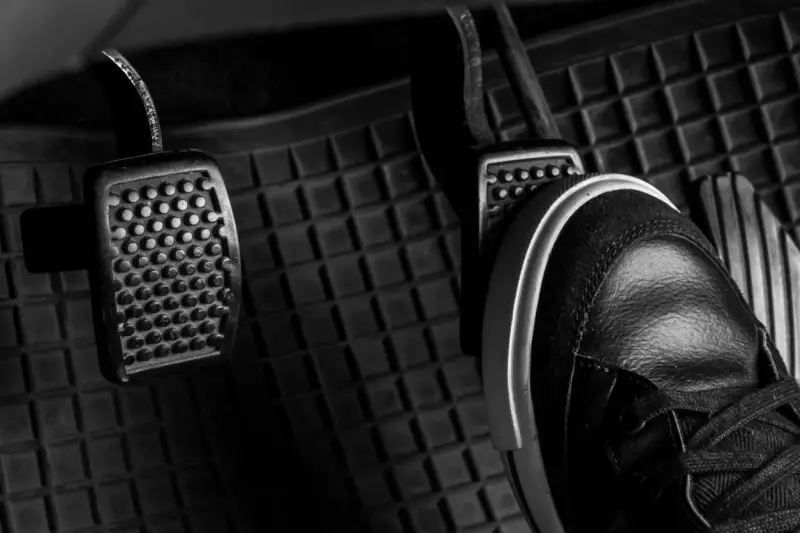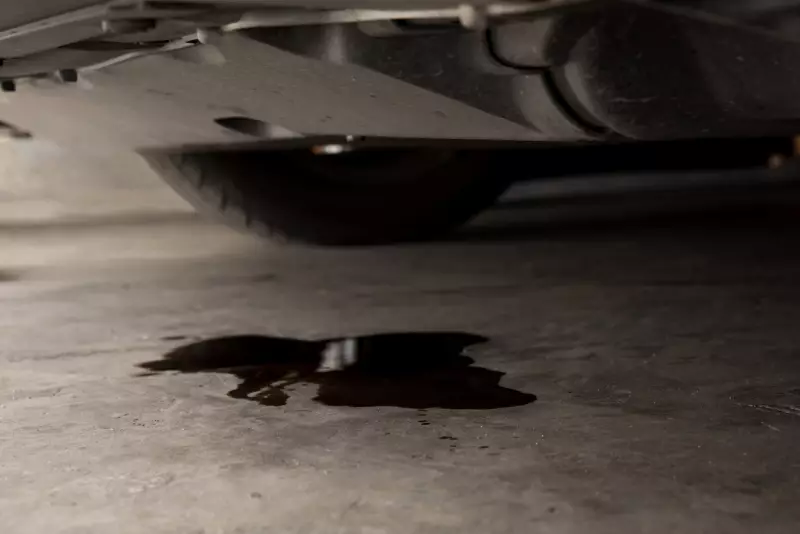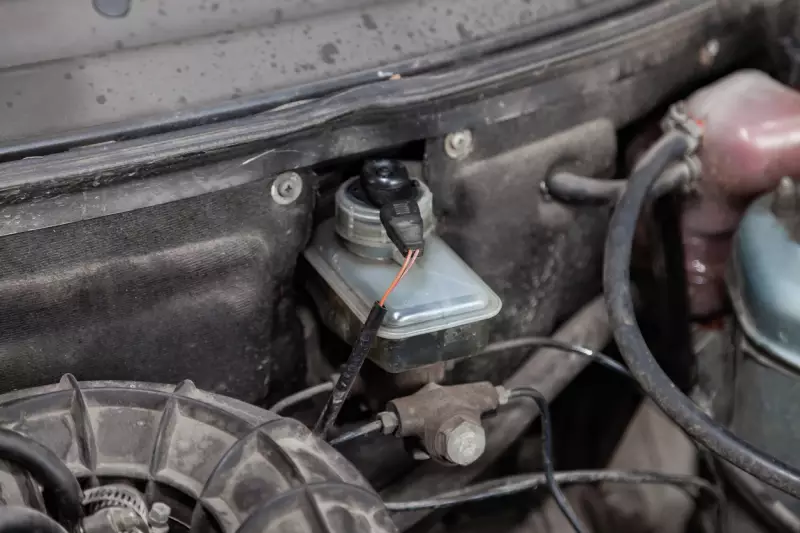
If you're noticing your brake pedal creeping down toward the floor during use, you have a problem that you need to sort out as soon as you can. Your vehicle's brakes are essential for stopping, and you could be in real danger if they aren't functioning properly. One of the first signs that your brake system is going bad is your brake pedal going down to the floor or close to the floor during braking. Many potential issues are leading to this problem, and you must diagnose this issue or bring your vehicle to a professional that can diagnose the problem for you as soon as possible.
Why is My Brake Pedal Going to the Floor?
Many potential problems with your vehicle can cause the brake pedal to drop down to the floor. Many of these issues are serious, but they are often simple to diagnose and reasonable to repair. If you have any of the issues outlined below, you likely have a soft brake pedal or a pedal that operates poorly or not at all when you want to stop.
- Low brake fluid
- Bad master cylinder
- Faulty brake booster
- Worn brake pads
- Malfunctioning ABS modulator
Other than checking the health of your brake pads and rotors, looking for brake fluid leaks, and checking the brake fluid level in your vehicle, you should work with a mechanic to evaluate all the other problems on the list above. If your brake pedal drops to the floor, your vehicle is unsafe to drive, and you must be careful. Avoid driving your vehicle as much as possible, and if you must go anywhere, drive at very slow speeds away from traffic as much as possible. If you cannot operate it safely, have your vehicle towed to the nearest garage.
Check the Fluid Level if Your Brake Pedal Goes to the Floor

The first thing you should do when your brake pedal starts dropping to the floor is check the brake fluid level. Look under the hood of your vehicle at your master cylinder, and verify the brake fluid level is nearly full. If your fluid level is slightly low, you can add some replacement brake fluid to raise the level. If the master cylinder is nearly out of fluid, you likely have a serious leak somewhere.
Check under your vehicle for a clear leaking fluid; this is likely the missing brake fluid. Look to see where the fluid is coming from. Finding the source of the leak will help you determine where the problem is. You may have a broken brake line, a damaged ABS, or even a leaking master cylinder. Once you locate the source of the leak, you can work with a local mechanic to have the issue repaired and your braking performance restored. If your fluid level isn't low, you must look for other potential issues instead.
The Brake Pedal Goes to the Floor, But the Fluid is Full
When your brake fluid level is full, but your brake system isn't functioning, you have other possible issues to look for. Your brake pads may be severely worn, and you can usually identify this issue by looking at your rotors for scraping and by listing for scuffing, grinding, and scraping when you press the brake pedal as you drive.
If your brake booster, master cylinder, or anti-lock braking system (ABS) modulator is the issue, you may note the pedal works sometimes and not others. You'll need a mechanic to help you diagnose this issue properly, and it can be a real struggle for a home mechanic to determine which of these three parts is the problem.
Why Does My Brake Pedal Go to the Floor Sometimes When Driving?
If your brake pedal works normally at first and then becomes squishy over time, it's possible you’re braking improperly or you have a dragging brake. Brake fluid is thick and delivers high stopping power when it's in proper working order. That thick fluid thins out as it heats up, though. When the fluid becomes too hot, you'll notice your brake pedal begins feeling squishy. If the fluid becomes extremely hot, your pedal may go down to the floor.
Stop braking so aggressively and begin pumping the brake pedal lightly instead of holding it down. Changing how you brake may resolve this issue, but you should also look for dragging brake pads as a potential culprit. Verify that you don't have your emergency brake activated as you're driving too. Any of these simple mistakes can cause your brake fluid to heat up and stop delivering the pressure you need to slow down effectively.
When the issue is the Master Cylinder or Brake Booster

Both the master cylinder and brake booster work together to deliver pressurized fluid to the calipers around your vehicle and press the brake pads into the rotors or drums to slow you down. If the master cylinder malfunctions, you may not be able to convert your pedal pressure into stopping power. If the brake booster stops, your pedal press won't deliver nearly as much stopping power as it once did. Either way, you'll feel a loss of pedal pressure, and your vehicle won't slow effectively any longer. Both brake booster and master cylinder issues can impact your braking intermittently, so any issue that only occurs sometimes is likely one of those things.
Worn Brake Pads May Be the Culprit
While worn brake pads are the least likely reason your brake pedal is dipping down to the floor, it is a possible cause. If you haven't changed your brake pads for many years or drive aggressively, you may have worn the brake pads out. If your brake pedal goes to the floor but still stops, you may be using your pads' metal to stop rather than the pads themselves. Do yourself a favor and look closely at your brake pads and rotors for any signs of wear. Make sure your brake pads are at least 6mm thick, and if they are lower than that have them changed as soon as possible. Replacing worn brake pads, scuffed rotors, and bleeding your brake system can add power to that brake pedal and stop effectively once again.
If Your Brake Pedal Suddenly Sinks to the Floor, You Likely Have a Leak
If your brake pedal starts operating normally and then sinks to the floor rapidly as you drive, it's likely you have a fluid leak that just developed. Stop your vehicle gradually and check under your vehicle for signs of a fluid leak. If you're leaking brake fluid, you must get to a garage as soon as possible to repair the issue.
Can ABS Cause Brake Pedal Go to the Floor?
The ABS pulses your brake pedals for you to help you stop without locking up your wheels entirely. This makes maintaining control while braking easier to do. If your ABS modulator starts failing, you may lose brake pressure without necessarily suffering from a brake fluid leak. Diagnosing this issue is difficult, but a garage will know how to check the modulator for it.
Always Test the Brakes on a Used Vehicle Hard Before Purchasing
When driving a used vehicle, the number one thing you should pay attention to is the braking performance. Try and stop the vehicle fast during a test drive. Slow down at high speeds and also slow down while going downhill. Complete all of these tests in an effort to uncover any brake system issues before making a purchase. The brake pedal should feel firm; there should be no shaking or grinding noises while stopping. If you notice any problems with the brake system, you should be wary of purchasing the vehicle. Also, consider a car history report to give you details about any past maintenance and accidents for the vehicle.
The brake system in your vehicle is the most important part of your ride. Without proper brake components, you can't stop when you need to. If your brake pedal begins dipping towards the floor, take immediate steps to troubleshoot the issue and resolve any problems you may have with the system.




















